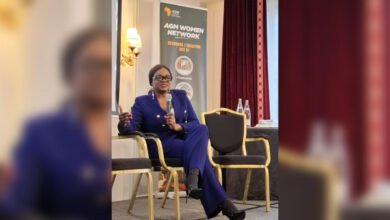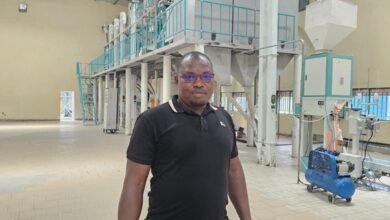First EducTeck fair in Algiers -“The connected generation is an opportunity to expand online services »
It is in the context of the digital shift in education that is held in Algiers, the first fair to create a « bridge between digital technology and education, EducTeck. The stakes for Algerians with Omar Ali Yahia, general manager of Beeform E-Learning and vice-president of the Algerian Group of Digital Actors (GAAN), co-organizer of the fair and Abdelkader Missoum, trainer and national coordinator of the network of schools and clubs associated with UNESCO in Algeria, for the educational component.
Interview by Nadjoua Khelil in Algiers
Read more : First EducTeck fair in Algiers -“The connected generation is an opportunity to expand online services »To « popularize » access to knowledge for all, you are organizing the first « EducTeck » fair in October. What is the purpose of this event?
Omar Ali Yahia:
It is the « Education and Knowledge Technologies » exhibition, which highlights the various digital players and technology dedicated to education, learning and teaching. Under the theme, « Digitalization for Education,” it allows participants and visitors to learn about technological advances, solutions and contemporary guidance tools to potential opportunities. On the sidelines, a first contest is planned: the « Online Algerian Teacher Award » which rewards the best online trainers, after sharing 48 courses with the general public who can choose their favorite trainer on http://concours.educteck.dz/
Algeria brought digital technology to its education system during the COVID-19 crisis. Two years later, what is the state of play? How do you evaluate this digital school experience?
Abdelkader Missoum:
The digital system, as introduced since 2020, affects more the administrative aspects of educational management. The digital treatment related to educational content is still at the project stage compared to the possibilities offered by ICT. The education sector has accumulated an undeniable experience in the field, through two national institutions: The National Office of Education and Distance Learning (ONEFD) and the National Center for Integration of Pedagogical Innovations and Development of Information and Communication Technologies in Education (CNIIPDTICE). The future is very promising, but the pace of this digitization is very slow.
Ali Yahia:
Given its advantages, digital technology is a priority for public administrations and the educational system in Algeria. The centralization of the school issue is one of the most interesting experiences. It allows information feedback from the entire territory; and in 2022 the integration of the electronic book and the tablet in schools. One more step towards the digitalization of education.
« These digital solutions are suitable to overcome geographic barriers and saturation of education seats »
What are the goals to be achieved through this educational strategy?
Abdelkader Missoum :
These projects announced a long time ago, in 2008, have just underwent their experimental phase in more than 1,500 schools (out of 28,585 educational institutions across the country, including 5,657 middle schools and 2,678 high schools, editor’s note). The objectives to be reached are in line with those of UNESCO relating to target number 4 to be reached in 2030 within the framework of the 17 Sustainable Development Goals of the United Nations (SDGs) and teaching-learning in the 21st century… The first steps taken nurture the hope of ensuring education performance.
A.Y:
The educational tablet improves the daily life of students and the electronic book is a financial saving for households, besides its strong ecological impact. The e-Learning, with fun pedagogical contents, allows to lighten the classroom, facilitates revision, catching up of courses and permanent connection with the teachers; all with zero paper.
These digital solutions are suitable to overcome geographical barriers and the saturation of education seats. Because by 2030, the demographic growth in Africa is likely to make the current infrastructures insufficient and the education seats increasingly rare, even by building new schools, difficult to contain the surplus.
Technology-based education prepares learners for the real world. What is its potential in improving the quality of education and developing skills and human capital in Algeria?
A.Y.:
We have a connected generation -22 million Algerians on social media and 49 million mobile internet users-, this is an opportunity to expand online services. The access to training and information in real time makes the digital skills much more practical, which should not be a constraint to become familiar with these tools.
A.M.:
Digital technology occupies all areas of modern life, starting with digital literacy. Besides, the teaching profession has evolved, requiring suited methods and a proper use of technologies. Therefore, the training of the teaching staff is the key word to achieve the missions included in the sustainable development strategies. Moreover, the training workload is so heavy, urgent and rapid that it is appropriate to talk about self-training and e-learning: concepts that are developed thanks to ICT.
How can digital technology meet the challenge of inclusive education in Algeria, knowing that access to the Internet and digital tools (PCs, headsets, etc.) is not available to all, especially in remote areas?
A.M.:
The digital efforts made by the Algerian state are enormous, but the rapid demographic change and the size of the territory necessarily create disparities in addressing the needs. Development, which is never linear, requires time and Algeria has lost time for bureaucratic reasons.

The solutions to the problems posed are technical, managerial and local and Algeria has economic and financial assets, it remains to overcome resistance to change. Digital technology will help it to overcome the bureaucracy and its archaic management system. That process has already started and will be accelerated by training.
A.Y.:
The construction of a digital ecosystem is based on an efficient network infrastructure. In this respect, the progress made is admirable, going from 512kb/s to 10mb/s of minimum speed and nearly 200,000 km of optical fiber across the country.
The program of migration from last-mile to the FTTH network, once completed, will allow sufficient coverage for any online service. The rest is provided by the ecosystem by strengthening content and services to meet demand.
« Digital technology is effective for education that is accessible to all, but requires rational use… »
What future for post-COVID e-learning in Algeria and Africa in general?
A.M. :
There is a pre- and a post-COVID, when it comes to teaching and learning. The pandemic has pushed education systems to find solutions to save the schooling of several million learners. Solutions have been advocated by UNESCO. E-learning systems have proven their efficiency, providing very effective solutions. But this could not overshadow the human being, the teacher, who was asked to adapt to become a facilitator in the face of multiple educational resources instead of the sole holder of knowledge: a real paradigm shift to be assumed. The future is to be looked at: the world’s educational systems will undergo upheavals.
A.Y:
Consumers of e-Learning are becoming more demanding in the post-COVID era: providing a course is no longer sufficient without a platform that allows for user management, secure access, real-time statistics, an overview of student attendance, good quality of virtual classes and content, etc. This turns our customers’ requirements into a real challenge for us, which we meet with research and development.
Startups have been the catalyst for the digital transition of the educational system, teaching and training in Algeria by developing appropriate solutions during the COVID. Are they called to get more involved?
A.Y:
When we created our company, we sought to establish a training platform for the general public. Since 80% of the requests were on reliable platforms for schools, training centers and companies, we switched to white label platforms for our customers, with a 360° support in the implementation of their projects and customized content with skills transfer. During the pandemic, we added a virtual classroom service, allowing our clients to be 100% autonomous on our platforms.
How do we achieve this goal of digital transformation through and for meaningfully inclusive education?
A.Y. :
Any digital transformation requires a strategy with long-term objectives: continuously improving the network infrastructure, investing in sustainable solutions and raising awareness of the benefits of digital technology.
A.M.:
Digital technology will drive schools forward. It democratizes cognitive resources and provides solutions for those excluded from the educational system. The new challenges of the school concern the negative effects of digital technology on social and human behavior, its management and care, such as smartphone addiction, the effects of the screen and waves on health, etc. Digital technology is effective for an education accessible to all, but requires a rational use…






